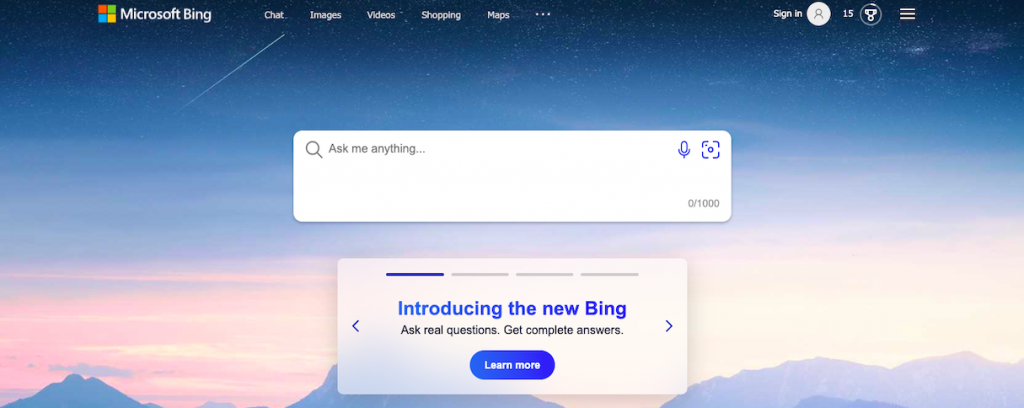Overview of the Bard technology
Google has introduced a new technology called Bard in response to Bing using ChatGPT in their search. Bard combines the vast knowledge of the world with the intelligence of Google’s large language models to provide high-quality answers to user questions. Bard will be applied to Google Search to improve results by combining complex information into easy-to-digest answers. The technology will initially be released with a lightweight model version of LaMDA that requires less processing power for scalability.

What are the benefits of AI in Google Search?
AI-powered features in Google Search are expected to be rolled out soon, with the goal of simplifying complex information into easier-to-digest formats to help users better understand information and turn it into useful knowledge in an efficient way. Google’s goal is to include the latest AI advances in their products and help developers innovate with AI in a safe and scalable way.
Here’s Google’s live stream from Paris where they share about the upcoming changes:
“Reimagining how people search.”
What could be the impact on SEO?
This new technology may be able to better understand and interpret user intent. This could lead to more personalised and relevant results in the SERPs. We think that SEO efforts may need to shift to focus on creating high-quality, user-focused content that effectively addresses user needs and helps them. The exact impact of all this on SEO is not yet clear. But we think it’s likely that the increasing use of AI in Google’s products and services will affect the strategies we’ve become so used to.

Pros and Cons of AI
There are always two sides to the story, so let’s look at the pros and cons:
The negative implications of AI technology in search and its potential impact on SEO include:
- Increased competition: As AI technology provides more personalised and relevant search results, competition between websites to rank higher in search results may increase.
- Algorithm dependency: SEO efforts may become more algorithm dependent.
The positive implications of AI technology in search and its potential impact on SEO include
- Improved user experience: AI technology can provide more personalised and relevant search results, resulting in a better user experience and increased user satisfaction.
- More accurate results: AI technology can analyse large amounts of information and provide accurate answers to complex queries, reducing the need for users to navigate through multiple websites to find what they’re looking for.
- Increased efficiency: AI technology can automate certain tasks and make the search process more efficient, saving time for both users and businesses.
- Opportunity for innovation: The use of AI technology in search can provide new opportunities for businesses and developers to innovate and create new products and services that improve the search experience.
Conclusion
AI’s ability to write and generate text is still limited in terms of identifying ‘good content’. This means that AI-generated answers will often be short and less detailed than those from a more comprehensive resource.
This shift in the search engine results page (SERP) could pose a threat to ad-based sites that rely on traffic generated by answering common questions. However, a drop in traffic does not necessarily mean a drop in conversions, as only the most engaged readers are likely to click through to websites. Retaining engaged readers is critical, and companies must focus on building email lists, social followings and retargeted ads for monetisation.
It’s important to note that search engines serve the content and therefore bear responsibility for it, so if bad AI advice leads to negative consequences, search engines like Google could face legal liabilities.
At this point, it is uncertain whether Google will incentivise content creators with the new AI technology and how it will impact the recognition of unique content. However, one thing is certain: we need to focus more than ever on providing exceptional content that offers value to our audience.
We hope this update has provided you with valuable insights into the future of search and we look forward to helping you stay ahead of the curve.
What do you think will happen? Leave us a comment below.
[ninja_form id=5]

